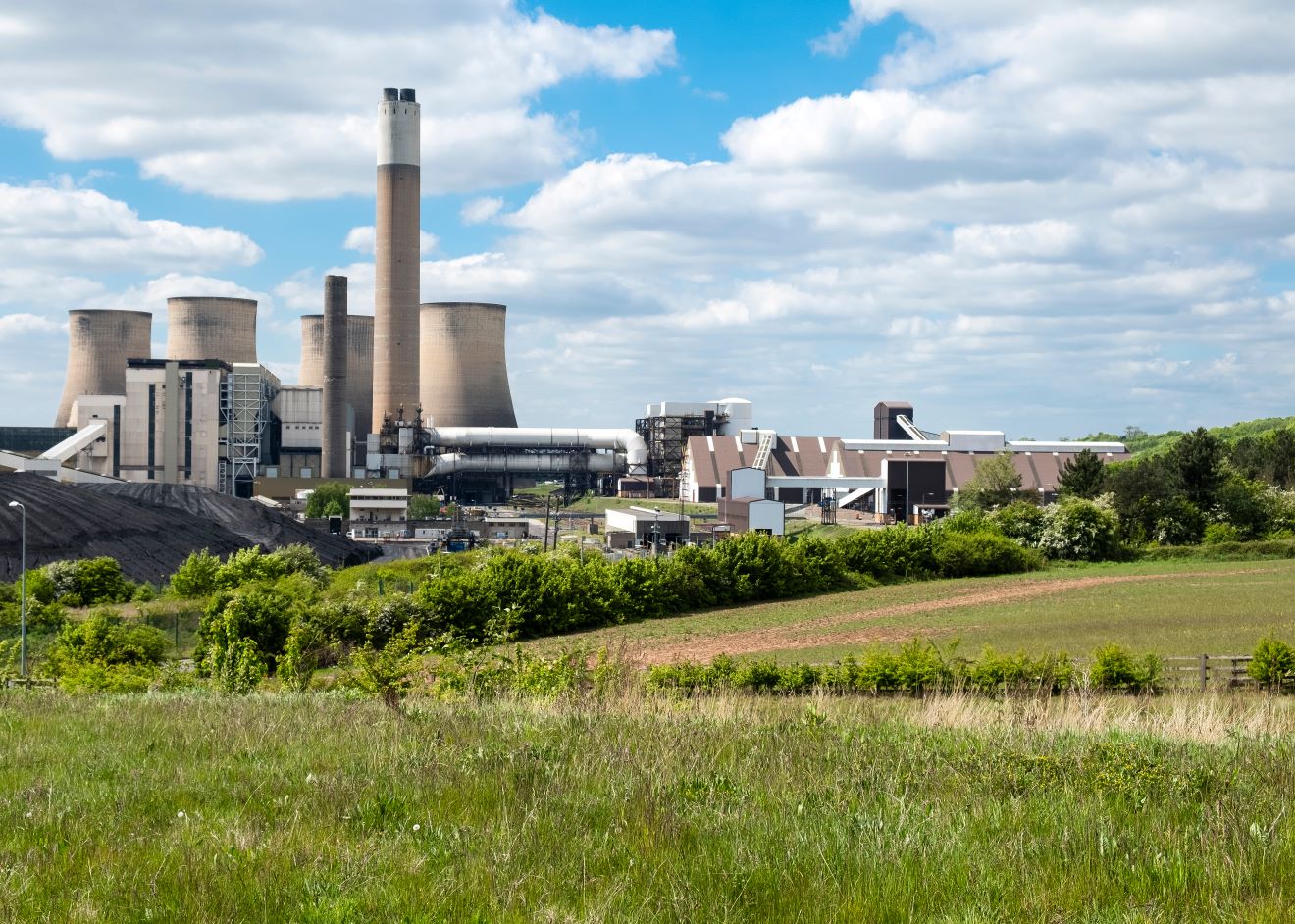Despite local protests and serious concerns from scientific experts, the UK Government is pressing ahead with hydrogen heating trials. As the COP28 climate summit gets underway, Johannes Hollenhorst looks at the agenda underlying these attempts to boost hydrogen and the broader significance for the UK’s energy transition.
After local protests against the hydrogen heating trial in Ellesmere Port, Cheshire, forced the gas company Cadent to halt its scheme this summer, similar protests erupted this month in Redcar, North Yorkshire, where Northern Gas Networks (NGN) has planned a similar trial. The hydrogen heating trials were set up and partially funded by the UK Government to inform its decision on the future role of hydrogen in the UK heating system. While safety is being widely reported as the biggest concern of local residents in both places, there are additional economic and ecological concerns that are paradigmatic for the crucial struggle for a just transition to net zero that should also be considered.
Breaking the rules
Rather than raising the question of how the social acceptance of hydrogen heating could be increased, I argue that local protests are an important counterweight to the oil and gas lobby which has been pushing for hydrogen to become an important part of the future UK heating system against the basic rules of thermodynamics. These basic rules account for the fact that hydrogen can be ignited much more easily than natural gas, but they also help to understand why heating with hydrogen is much less efficient than the direct electrification of heating through heat pumps. While efficiency – rightly – is often just one argument among many when it comes to technology evaluation, in the case of hydrogen heating, the efficiency argument translates into substantial economic and ecological deficits.
The basic rules of thermodynamics also inform the strong contestation of hydrogen heating emerging from an increasing number of voices in the natural science community who question the feasibility of the widespread use of hydrogen for space and hot water heating. And yet, the trials and additional safety and grid conversion tests have been provided with tens of millions of funding from the UK government, Ofgem, and National Grid. By postponing the decision about the role of hydrogen heating in the UK until 2026, the UK Government has bought oil and gas companies additional time and resources to carry out the hydrogen trials and to try to substantiate a case that is next to impossible to make. If considered in direct comparison to electric and geothermal alternatives like heat pumps rather than in comparison to natural gas heating, it becomes clear that heat pumps have a dramatic 5:1 thermodynamic efficiency advantage over hydrogen heating.
Informed public opinion?
The hydrogen heating trails must therefore be seen as an opportunity for oil and gas companies to position hydrogen heating as a legitimate alternative to heat pumps by creating positive experiences among residents with the more straightforward transition from natural gas to hydrogen. Scottish Gas Network (SGN), for instance, has argued on multiple occasion in relation to their “Fife 100” hydrogen heating trial that their customers would prefer hydrogen heating over heat pumps due to the smoother transition from heating with natural gas.
The lack of reliable information on the long-term price and the source of hydrogen is sparking the anger of a lot of residents in Ellesmere and Redcar
While the replacement of a boiler is admittedly more straightforward than reinforcing the electricity grid and making space for heat pumps, SGN’s argument that customers prefer hydrogen heating is based on surveying customers in the absence of an approximate hydrogen price and without providing full information on the source and the ecological implications of heating with hydrogen. And in fact, it is the lack of reliable information on the long-term price and the source of hydrogen that is sparking the anger of a lot of residents in Ellesmere and Redcar, along with the fact that hydrogen heating comes with a higher risk of harmful explosions even though these events are expected to be less frequent.
Hidden costs
Thanks to the government funding, the price of hydrogen would be equivalent to the price of natural gas for the duration of the trials. But this will not reflect the reality after the trials and local residents have quickly understood this. While it could be argued that it is hard for anyone to predict what the price of hydrogen will be in more than three years’ time, it only takes logical thinking to reach two simple conclusions:
- There will not be enough renewable electricity and electrolysis capacity to heat all or even just half of UK homes with green hydrogen in any foreseeable future without the additional use of blue hydrogen.
- The price of blue hydrogen, which is hydrogen extracted from natural gas with carbon dioxide abatement through Carbon Capture and Storage (CSS), will always be more expensive than natural gas due to the extra infrastructures and processing required.
Long term, this means that hydrogen heating will necessarily be more expensive than the current heating system due to the additional cost of CCS and more ecologically damaging than a fully renewable system due to the continued dependence on natural gas extraction and processing. Investing in the direct electrification of the UK heating system, even if it will incur additional costs for the insulation of extremely poorly insulated homes, will therefore logically pay off long-term.
Vested interests
So why did the Government fund the hydrogen heating trials in the first place? While lobbyism is hard to trace down to individual decisions, the All-Party Parliamentary Group on Hydrogen (APPG Hydrogen) is a good example of well-organised lobbyism in Westminster: Established in 2018, the group has been mainly funded by oil and gas companies like Cadent, Equinor, NGN, SGN and Shell. Hosting regular events which bring together parliamentarians with businesses and organisations from the hydrogen sector, the APPG Hydrogen provided a regular platform for distractions from the basic rules of thermodynamics and overarching scientific opinions. The then newly elected chairman of APPG Hydrogen, Alexander Stafford, Conservative MP for Rother Valley, South Yorkshire, fittingly said at the beginning of an event on “Hydrogen in Homes” at Portcullis House in October 2022 that while hydrogen heating had an “exciting potential”, there was a lot of “fuzz” going on around hydrogen homes so that there remained a “large battle” ahead.
Since the Government has yet to decide on the future of hydrogen heating in homes, the battle for an economically and ecologically sensible transition is far from over.
If the APPG Hydrogen fights on one end of the battlefield, local protestors in Redcar and Ellesmere Port have been trying to stand their ground on the other side. And since the Government has yet to decide on the future of hydrogen heating in homes, the battle for an economically and ecologically sensible transition is far from over.
And there are other battlegrounds, too: This years’ 28th session of the UN Climate Change Conference (COP 28) in the United Arab Emirates (UAE), has already been reported to be more heavily lobbied in the interest of oil and gas companies than any previous COP. Scandals concerning the confidentiality of e-mails, direct influence of the consultancy McKinsey, and the planned promotion of oil deals during the conference weigh heavily on the credibility of the COP 28 president, Sultan Ahmed Al-Jaber. His actions have been watched with extra care due to his parallel role as CEO of the Abu Dhabi National Oil Company (ADNOC) while local protests in the UAE will be largely banned.
These revelations, along with the lack of consideration that has been given to the voices of both local communities and scientists in shaping a long-term policy solution for the transition of the UK heating system, unfortunately provide little grounds for optimism about COP 28.
All articles posted on this blog give the views of the author(s), and not the position of LSE British Politics and Policy, nor of the London School of Economics and Political Science.
Image credit: Diana Vucane / Shutterstock.com







